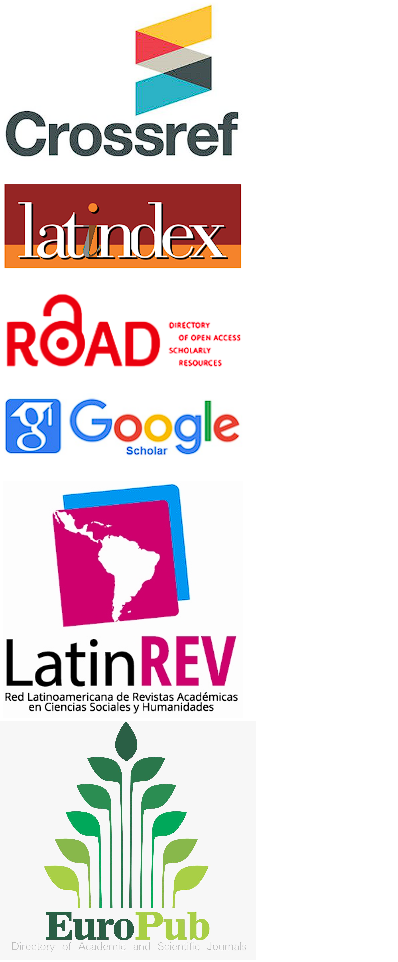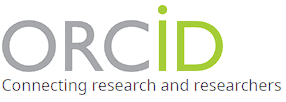E-government como Estrategia de Continuidad ante COVID-19
DOI:
https://doi.org/10.58299/cisa.v5i5.34Keywords:
Administracion electronica, Pandemia, Servicios digitales, Tic's, transformacion digitalAbstract
La prestación de servicios es fundamental en la capacidad operativa de los gobiernos ante eventos disruptivos como la pandemia de COVID-19 ha traslocado su capacidad de eficiencia colocándolos en la necesidad de ofrecer servicios digitales de forma abrupta. El presente trabajo tiene como objetivo investigar cómo la pandemia afectó los procesos de E-government bajo sus distintos modelos, se llevó a cabo una revisión sistemática de la literatura en la que se analizaron 76 artículos acerca de cómo los gobiernos abordaron la prestación de servicios en el contexto de la pandemia. Los resultados muestran que la pandemia fungió como catalizador acelerando la integración de TIC´s para amortiguar los efectos del virus donde el principal foco de interés de los gobiernos fue el desarrollo de servicios dentro de ámbitos como salud, educación y comunicación orientados a ciudadanos (G2C).
References
Agbozo, E., & Asamoah, B. K. (2019). The role of e-government systems in ensuring government effectiveness and control of corruption. R-Economy. 2019. Vol. 5. Iss. 2, 5(2), 53-60. http://dx.doi.org/10.15826/recon.2019.5.2.006
Agostino, D., Arnaboldi, M., & Lema, M. D. (2021). New development: COVID-19 as an accelerator of digital transformation in public service delivery. Public Money & Management, 41(1), 69-72. https://doi.org/10.1080/09540962.2020.1764206
Aguilar-Viana, A. C. (2021). Transformação digital na administração pública: Do governo eletrônico ao governo digital. Revista Eurolatinoamericana de Derecho Administrativo, 8(1), 115-136. https://doi.org/10.14409/redoeda.v8i1.10330
AlAjmi, M. K. (2022). The impact of digital leadership on teachers’ technology integration during the COVID-19 pandemic in Kuwait. International Journal of Educational Research, 112, 101928. https://doi.org/10.1016/j.ijer.2022.101928
Aldekhyyel, R. N., Binkheder, S., Aldekhyyel, S. N., Alhumaid, N., Hassounah, M., AlMogbel, A., & Jamal, A. A. (2022). The Saudi Ministries Twitter communication strategies during the COVID-19 pandemic: A qualitative content analysis study. Public Health in Practice, 3, 100257. https://doi.org/10.1016/j.puhip.2022.100257
Alghamdi, S. M., Alsulayyim, A. S., Alqahtani, J. S., & Aldhahir, A. M. (2021). Digital Health Platforms in Saudi Arabia: Determinants from the COVID-19 Pandemic Experience. Healthcare, 9(11). https://doi.org/10.3390/healthcare9111517
Ali, Y., & Khan, H. U. (2022). Designing evaluation framework for the empirical assessment of COVID-19 mobile apps in Pakistan. Computers and Electrical Engineering, 102, 108260. https://doi.org/10.1016/j.compeleceng.2022.108260
Alkhalifah, J. M., Seddiq, W., Alshehri, B. F., Alhaluli, A. H., Alessa, M. M., & Alsulais, N. M. (2022). The role of the COVID-19 pandemic in expediting digital health-care transformation: Saudi Arabia’s experience. Informatics in Medicine Unlocked, 33, 101097. https://doi.org/10.1016/j.imu.2022.101097
Anderson, R. M., Heesterbeek, H., Klinkenberg, D., & Hollingsworth, T. D. (2020). How will country-based mitigation measures influence the course of the COVID-19 epidemic?. The lancet, 395(10228), 931-934. https://doi.org/10.1016/s0140-6736(20)30567-5
Assaye, B. T., & Shimie, A. worku. (2022). Telemedicine use during COVID-19 pandemics and associated factors among health professionals working in health facilities at resource-limited setting 2021. Informatics in Medicine Unlocked, 33, 101085. https://doi.org/10.1016/j.imu.2022.101085
Barrutia, J. M., & Echebarria, C. (2021). Effect of the COVID-19 pandemic on public managers’ attitudes toward digital transformation. Technology in Society, 67, 101776. https://doi.org/10.1016/j.techsoc.2021.101776
Bonaccorsi, G., Pierri, F., Cinelli, M., Flori, A., Galeazzi, A., Porcelli, F., Schmidt, A. L., Valensise, C. M., Scala, A., Quattrociocchi, W., & Pammolli, F. (2020). Economic and social consequences of human mobility restrictions under COVID-19. Proceedings of the National Academy of Sciences, 117(27), 15530-15535. https://doi.org/10.1073/pnas.2007658117
Chatzopoulou, C., Tsolkanakis, D., Vasileiadou, S. M., Kyriakidis, K., Skoutzouri, K., Kirtikidou, D., Shah, S. I. H., & Peristeras, V. (2022). E-Government and COVID-19: An Empirical Study in Greece. En E. Garoufallou, M.-A. Ovalle-Perandones, & A. Vlachidis (Eds.), Metadata and Semantic Research (pp. 307-321). Springer International Publishing. https://doi.org/10.1007/978-3-030-98876-0_27
Chen, M., Xu, S., Husain, L., & Galea, G. (2021). Digital health interventions for COVID-19 in China: A retrospective analysis. Intelligent Medicine, 1(1), 29-36. https://doi.org/10.1016/j.imed.2021.03.001
Chen, Q., Min, C., Zhang, W., Wang, G., Ma, X., & Evans, R. (2020). Unpacking the black box: How to promote citizen engagement through government social media during the COVID-19 crisis. Computers in Human Behavior, 110, 106380. https://doi.org/10.1016/j.chb.2020.106380
Chon, M.-G., & Kim, S. (2022). Dealing with the COVID-19 crisis: Theoretical application of social media analytics in government crisis management. Public Relations Review, 48(3), 102201. https://doi.org/10.1016/j.pubrev.2022.102201
Delgado Martín, A. V., & Larrú Ramos, J. M. (2022). DEIFDC framework: Evaluation of digital education deployment in India in the midst of the Covid-19 pandemic. Social Sciences & Humanities Open, 6(1), 100281. https://doi.org/10.1016/j.ssaho.2022.100281
DESA. (2020). UN E-Government Survey 2020. UN E-Government Knowledgebase. https://publicadministration.un.org/egovkb/en-us/Reports/UN-E-Government-Survey-2020
Dubois, E., Yuan, X., Gayle, D. B., Khurana, P., Knight, T., Laforce, S., Turetsky, D., & Wild, D. (2022). Socially vulnerable populations adoption of technology to address lifestyle changes amid COVID-19 in the US. Data and Information Management, 6(2), 100001. https://doi.org/10.1016/j.dim.2022.100001
Faraj, S., Renno, W., & Bhardwaj, A. (2021). Unto the breach: What the COVID-19 pandemic exposes about digitalization. Information and Organization, 31(1), 100337. https://doi.org/10.1016/j.infoandorg.2021.100337
Gabryelczyk, R. (2020). Has COVID-19 Accelerated Digital Transformation? Initial Lessons Learned for Public Administrations. Information Systems Management, 37(4), 303-309. https://doi.org/10.1080/10580530.2020.1820633
Guinchard, A. (2021). Our digital footprint under Covid-19: Should we fear the UK digital contact tracing app? International Review of Law, Computers & Technology, 35(1), 84-97. https://doi.org/10.1080/13600869.2020.1794569
Guo, Y., Chen, J., & Liu, Z. (2022). Government responsiveness and public acceptance of big-data technology in urban governance: Evidence from China during the COVID-19 pandemic. Cities, 122, 103536. https://doi.org/10.1016/j.cities.2021.103536
He, Y., Yatsuya, H., Ota, A., & Tabuchi, T. (2022). The association of public trust with the utilization of digital contact tracing for COVID-19 in Japan. Public Health in Practice, 4, 100279. https://doi.org/10.1016/j.puhip.2022.100279
Jebbour, M. (2022). The unexpected transition to distance learning at Moroccan universities amid COVID-19: A qualitative study on faculty experience. Social Sciences & Humanities Open, 5(1), 100253. https://doi.org/10.1016/j.ssaho.2022.100253
Khalid, S. A., & Lavilles, R. Q. (2019). Maturity Assessment of Local E-government Websites in the Philippines. Procedia Computer Science, 161, 99-106. https://doi.org/10.1016/j.procs.2019.11.104
Krishnan, S. (2022). Exploring female frontline health workers’ role and capacities in COVID-19 response in India. International Journal of Disaster Risk Reduction, 75, 102962. https://doi.org/10.1016/j.ijdrr.2022.102962
Kumar, R., Sachan, A., & Mukherjee, A. (2017). Qualitative approach to determine user experience of e-government services. Computers in Human Behavior, 71, 299-306. https://doi.org/10.1016/j.chb.2017.02.023
Lee, S. M., & Lee, D. (2021). Opportunities and challenges for contactless healthcare services in the post-COVID-19 Era. Technological Forecasting and Social Change, 167, 120712. https://doi.org/10.1016/j.techfore.2021.120712
Locatelli, E., & Lovari, A. (2021). Platformization of healthcare communication: Insights from the early stage of the COVID-19 pandemic in Italy. En Catalan Journal of Communication & Cultural Studies (Vol. 13, Número The Breakthrough of Digital Health, pp. 249-266). Intellect. https://doi.org/10.1386/cjcs_00052_1
Mansoor, M. (2021). Citizens’ trust in government as a function of good governance and government agency’s provision of quality information on social media during COVID-19. Government Information Quarterly, 38(4), 101597. https://doi.org/10.1016/j.giq.2021.101597
Maqsood, A., Abbas, J., Rehman, G., & Mubeen, R. (2021). The paradigm shift for educational system continuance in the advent of COVID-19 pandemic: Mental health challenges and reflections. Current Research in Behavioral Sciences, 2, 100011. https://doi.org/10.1016/j.crbeha.2020.100011
Mat Dawi, N., Namazi, H., Hwang, H. J., Ismail, S., Maresova, P., & Krejcar, O. (2021). Attitude Toward Protective Behavior Engagement During COVID-19 Pandemic in Malaysia: The Role of E-government and Social Media. Frontiers in Public Health, 9, 609716. https://doi.org/10.3389/fpubh.2021.609716
Mazid, I. (2022). Social presence for strategic health messages: An examination of state governments’ use of Twitter to tackle the Covid-19 pandemic. Public Relations Review, 48(4), 102223. https://doi.org/10.1016/j.pubrev.2022.102223
Mbunge, E., Batani, J., Gaobotse, G., & Muchemwa, B. (2022). Virtual healthcare services and digital health technologies deployed during coronavirus disease 2019 (COVID-19) pandemic in South Africa: A systematic review. Global Health Journal, 6(2), 102-113. https://doi.org/10.1016/j.glohj.2022.03.001
Meiyanti, R., Utomo, B., Sensuse, D. I., & Wahyuni, R. (2018). e-Government Challenges in Developing Countries: A Literature Review. 2018 6th International Conference on Cyber and IT Service Management (CITSM), 1-6. https://doi.org/10.1109/CITSM.2018.8674245
Mouter, N., Collewet, M., De Wit, G. A., Rotteveel, A., Lambooij, M. S., & Kessels, R. (2021). Societal Effects Are a Major Factor for the Uptake of the Coronavirus Disease 2019 (COVID-19) Digital Contact Tracing App in The Netherlands. Value in Health, 24(5), 658-667. https://doi.org/10.1016/j.jval.2021.01.001
Nusir, M., & Bell, D. (2013). Systematic Literature Review: Taxonomy Of Services In E-Government. 27, 27. https://aisel.aisnet.org/ukais2013/27
OECD. (2020). Digital Transformation in the Age of COVID-19: Building Resilience and Bridging Divides, Digital Economy Outlook 2020 Supplement. www.oecd.org/digital/digital-economy-outlook-covid.pdf
OECD. (2021, mayo 10). The territorial impact of COVID-19: Managing the crisis and recovery across levels of government [OECD Policy Responses to Coronavirus (COVID-19)]. Better policies for better life. https://www.oecd.org/coronavirus/policy-responses/the-territorial-impact-of-covid-19-managing-the-crisis-and-recovery-across-levels-of-government-a2c6abaf/
ONU. (2020). COVID-19 pushes more government activities online despite persisting digital divide [Organizacion de las Naciones Unidas]. Organizacion de las Naciones Unidas. https://www.un.org/es/desa/covid-19-pushes-more-government-activities-online-despite-persisting-digital
Ozkaramanli, D., Karahanoğlu, A., & Verbeek, P.-P. (2022). Reflecting on Design Methods and Democratic Technology Development: The Case of Dutch Covid-19 Digital Contact-Tracing Application. She Ji: The Journal of Design, Economics, and Innovation, 8(2), 244-269. https://doi.org/10.1016/j.sheji.2022.04.002
Padeiro, M., Bueno-Larraz, B., & Freitas, Â. (2021). Local governments’ use of social media during the COVID-19 pandemic: The case of Portugal. Government Information Quarterly, 38(4), 101620. https://doi.org/10.1016/j.giq.2021.101620
Perdana, A., & Mokhtar, I. A. (2022). Seniors’ adoption of digital devices and virtual event platforms in Singapore during Covid-19. Technology in Society, 68, 101817. https://doi.org/10.1016/j.techsoc.2021.101817
Peruzzo, F., Ball, S. J., & Grimaldi, E. (2022). Peopling the crowded education state: Heterarchical spaces, EdTech markets and new modes of governing during the COVID-19 pandemic. International Journal of Educational Research, 114, 102006. https://doi.org/10.1016/j.ijer.2022.102006
Pham, H., Tran, Q.-N., La, G.-L., Doan, H.-M., & Vu, T.-D. (2021). Readiness for digital transformation of higher education in the Covid-19 context: The dataset of Vietnam’s students. Data in Brief, 39, 107482. https://doi.org/10.1016/j.dib.2021.107482
Ratten, V. (2023). Digital platforms and transformational entrepreneurship during the COVID-19 crisis. International Journal of Information Management, 72, 102534. https://doi.org/10.1016/j.ijinfomgt.2022.102534
Reissig, L., Stoinescu, A., & Mack, G. (2022). Why farmers perceive the use of e-government services as an administrative burden: A conceptual framework on influencing factors. Journal of Rural Studies, 89, 387-396. https://doi.org/10.1016/j.jrurstud.2022.01.002
Rosis, S. D., Lopreite, M., Puliga, M., & Vainieri, M. (2021). The early weeks of the Italian Covid-19 outbreak: Sentiment insights from a Twitter analysis. Health Policy, 125(8), 987-994. https://doi.org/10.1016/j.healthpol.2021.06.006
Santoveña-Casal, S., Gil-Quintana, J., & Ramos, L. (2021). Digital citizens’ feelings in national #Covid 19 campaigns in Spain. Heliyon, 7(10), e08112. https://doi.org/10.1016/j.heliyon.2021.e08112
Singh, M., Adebayo, S. O., Saini, M., & Singh, J. (2021). Indian government E-learning initiatives in response to COVID-19 crisis: A case study on online learning in Indian higher education system. Education and Information Technologies, 26(6), 7569-7607. https://doi.org/10.1007/s10639-021-10585-1
Tejedo-Romero, F., Araujo, J. F. F. E., Tejada, Á., & Ramírez, Y. (2022). E-government mechanisms to enhance the participation of citizens and society: Exploratory analysis through the dimension of municipalities. Technology in Society, 70, 101978. https://doi.org/10.1016/j.techsoc.2022.101978
Turner, M., Kim, J., & Kwon, S.-H. (2022). The Political Economy of E-Government Innovation and Success in Korea. Journal of Open Innovation: Technology, Market, and Complexity, 8(3), 145. https://doi.org/10.3390/joitmc8030145
Twizeyimana, J. D., & Andersson, A. (2019). The public value of E-Government – A literature review. Government Information Quarterly, 36(2), 167-178. https://doi.org/10.1016/j.giq.2019.01.001
Uwizeyimana, D. E. (2022). Analysing the importance of e-government in times of disruption: The case of public education in Rwanda during Covid-19 lockdown. Evaluation and Program Planning, 91, 102064. https://doi.org/10.1016/j.evalprogplan.2022.102064
Vishnu, S., Sathyan, A. R., Sam, A. S., Radhakrishnan, A., Ragavan, S. O., Kandathil, J. V., & Funk, C. (2022). Digital competence of higher education learners in the context of COVID-19 triggered online learning. Social Sciences & Humanities Open, 6(1), 100320. https://doi.org/10.1016/j.ssaho.2022.100320
Vogt, F., Haire, B., Selvey, L., Katelaris, A. L., & Kaldor, J. (2022). Effectiveness evaluation of digital contact tracing for COVID-19 in New South Wales, Australia. The Lancet Public Health, 7(3), e250-e258. https://doi.org/10.1016/S2468-2667(22)00010-X
Wang, Y., Hao, H., & Platt, L. S. (2021). Examining risk and crisis communications of government agencies and stakeholders during early-stages of COVID-19 on Twitter. Computers in Human Behavior, 114, 106568. https://doi.org/10.1016/j.chb.2020.106568
WHO, W. H. O. (2020, mayo 4). Coronavirus disease (COVID-19). Ituation Report – 105. World Health Organization. https://www.who.int/docs/defaultsource/coronaviruse/situation-reports/20200504-covid-19- sitrep-105.pdf?sfvrsn=4cdda8af_2
Zeemering, E. S. (2021). Functional fragmentation in city hall and Twitter communication during the COVID-19 Pandemic: Evidence from Atlanta, San Francisco, and Washington, DC. Government Information Quarterly, 38(1), 101539. https://doi.org/10.1016/j.giq.2020.101539







